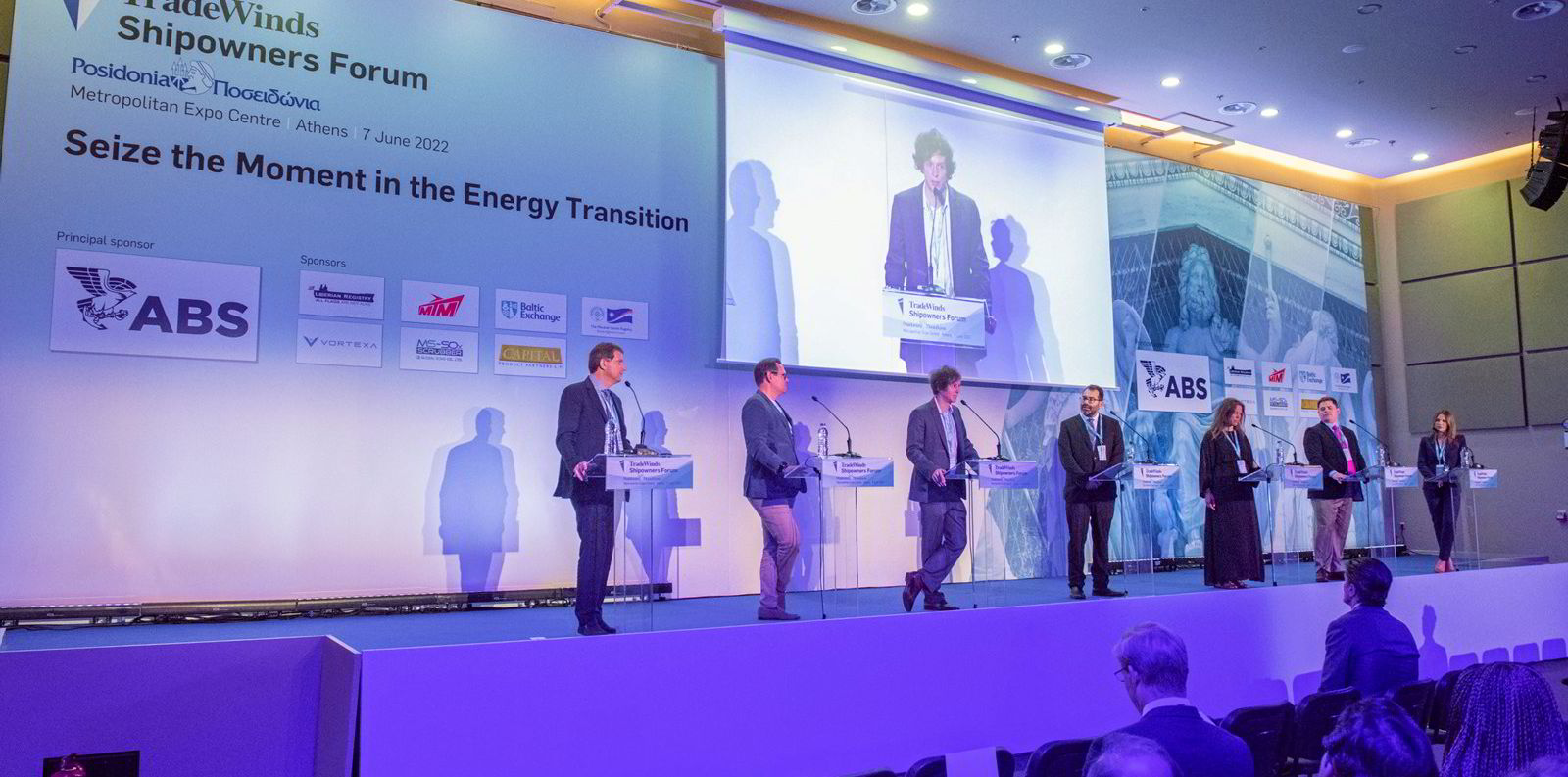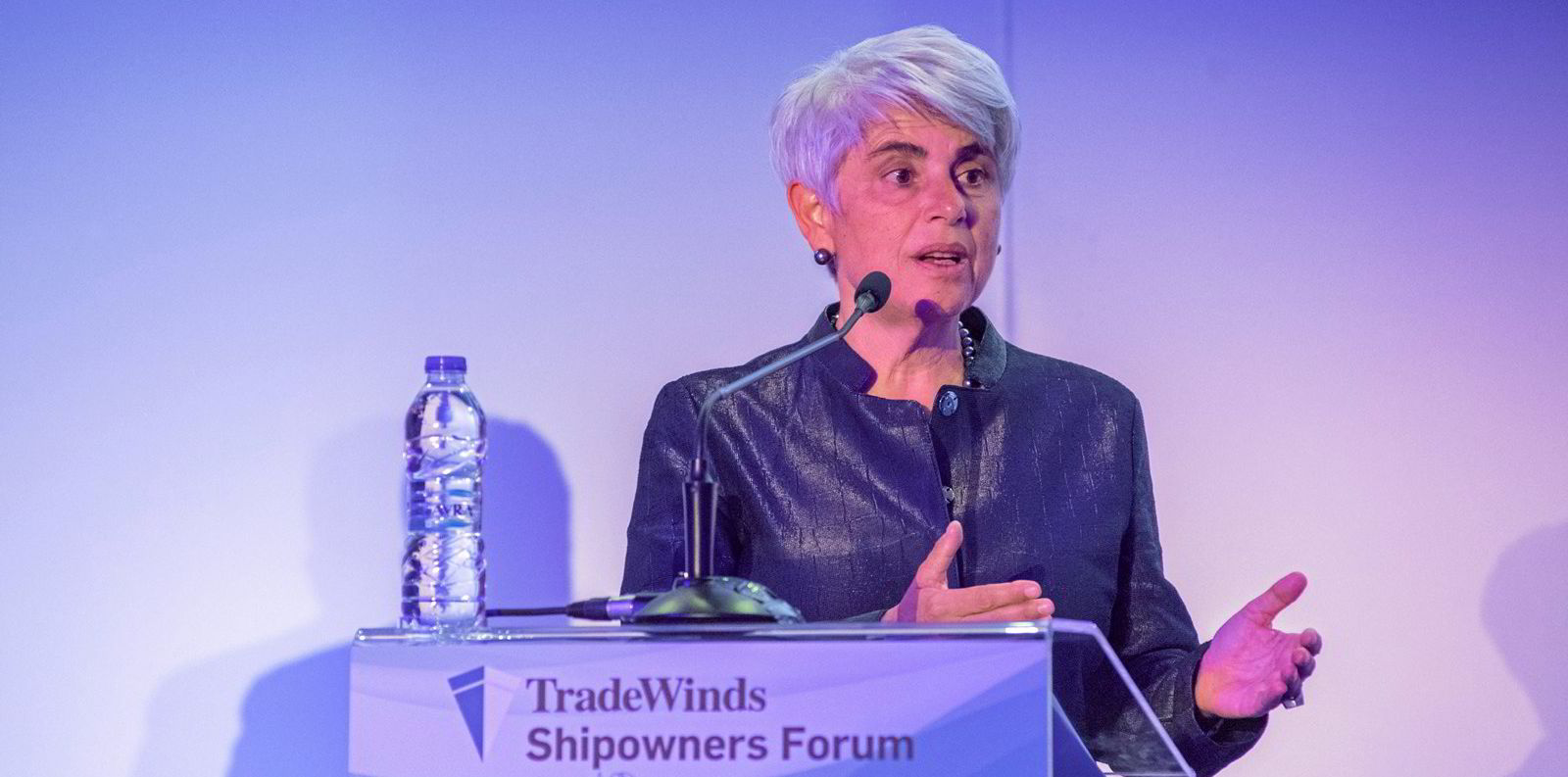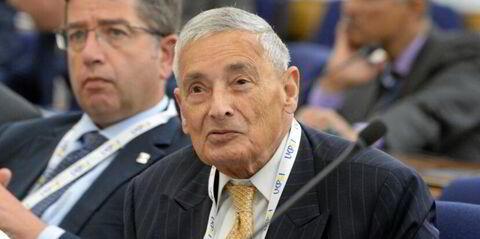Much of the debate over shipping’s decarbonisation is focused on International Maritime Organization goals for 2050, and the future fuels that will make a zero-carbon goal possible at that time.
But there’s a growing ecosystem of digital technology companies that are unlocking opportunities to reduce greenhouse gas emissions now.
Some shipping companies are increasingly adopting these tools, for example, to optimise operations to reduce fuel consumption amid a rapid acceleration of digitalisation in the industry since the start of the pandemic. Many still have not, though that may change ahead of new carbon regulations come into force next year from the International Maritime Organization and European Union.
At the TradeWinds Shipowners Forum in Athens during Posidonia, I had the opportunity to ask a panel of technology innovators how barriers to using digital tools to reduce emissions now can be overcome.
For DeepSeas Technologies chief executive Roberto Coustas, whose company has developed deep learning technology to make vessels more efficient, shipping is slowly starting to realise that there are low-hanging fruits of decarbonisation that can be achieved through technology.
And he sees incentives already in place to push shipping companies to harvest those low-hanging fruits, in the form of fuel costs.
“Many companies realise that actually, you can reduce CO2 … while at the same time, saving money through bunkers savings,” he said.
“Therefore, it’s not a trade-off anymore. You can achieve a 5% to 10% decrease in CO2, while at the same time having better cash flow for your company.”
ZeroNorth chief revenue officer Jesper Bo Hansen, whose company is focused on helping shipping companies optimise operations to cut carbon emissions, said that financial incentive is combined with a desire to make the industry greener.
But shipping faces an issue of change management, since the industry’s latest major innovation was the invention of the diesel engine.

“When you hear the shipping industry say, ‘We’re investing in green. We want to be green. We want to be on the forefront,’ I think it’s about putting their money where their mouth is,” he said.
He said that in order to do that, shipowners need to support technology companies, which have more knowledge of what needs to happen than shipping outfits can build in-house.
“So investing in the technology and the green transformation is actually taking a plunge and becoming a customer in the technology companies,” he said.
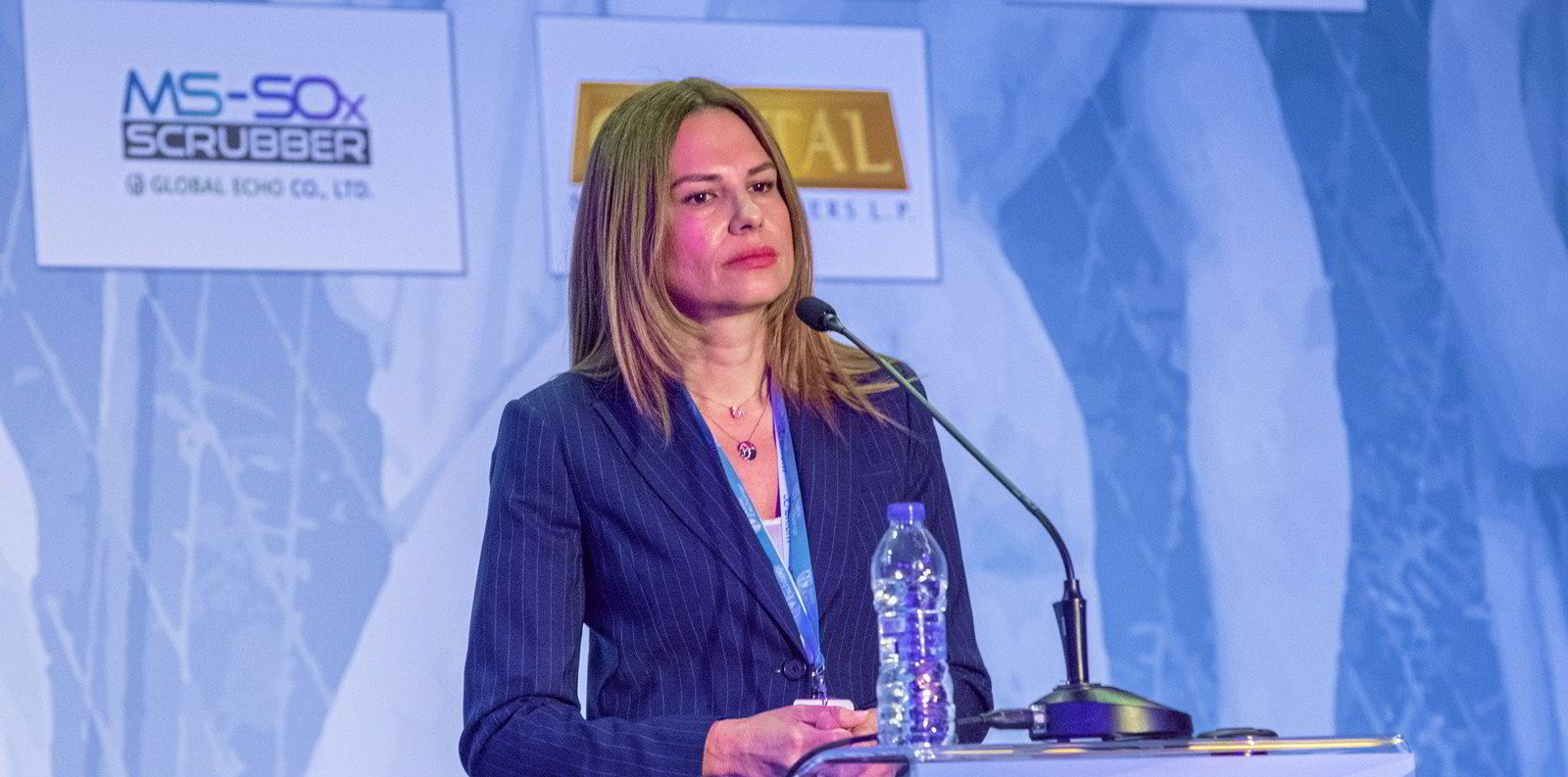
In mere months, shipping will have to comply with the IMO’s Carbon Intensity Indicator (CII) and the EU’s Emissions Trading System (ETS), both of which will impact how ships are operated.
Metis Cyberspace Technologies president Eleni Polychronopoulou, whose company has developed digital tools to help shipping companies comply with CII, believes digitalisation is inevitable to comply with upcoming regulations on carbon.
“Digitalisation can actually offer a window to the future with a very, very realistic basis,” she said.
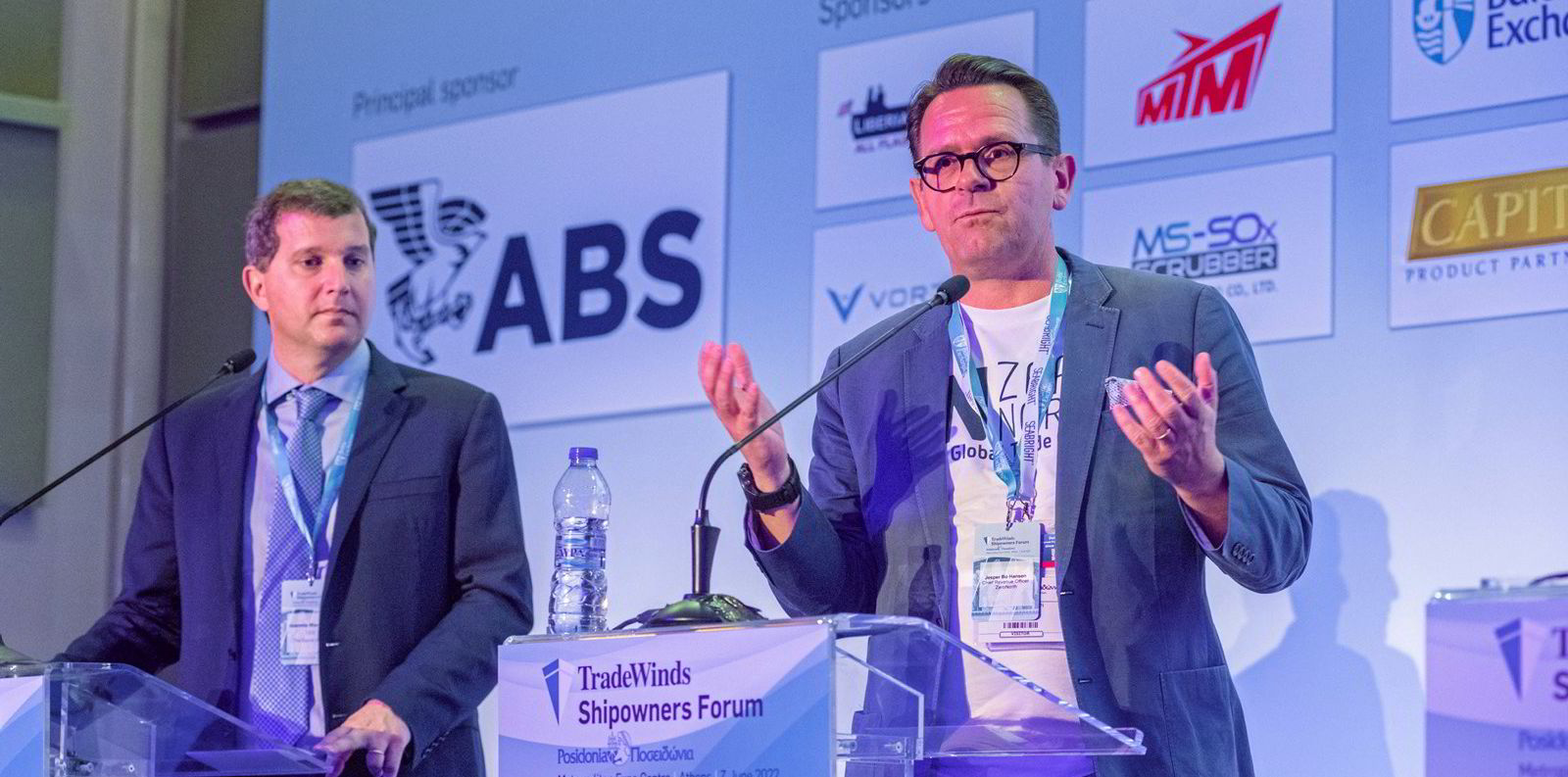
Signal Group chief executive Ioannis Martinos, whose company includes ship management and digital technology arms, pointed to Elon Musk’s mantra of not optimising something that should not exist.
In the spot market, that could be applied to a ballast journey by a ship in the spot market that, for example, crosses the Atlantic empty to carry a cargo from Houston to the Caribbean.
The ballast leg should not exist, said Martinos, whose Signal Ocean unit provides carbon data as part of its digital tools to aid commercial decision-making in shipping.
“It’s a commercial decision that, through our data, we unfortunately see is being made all the time,” he said. “And the reason it’s being made all the time is that the zero cost for the carbon emitting during the ballast leg.”
The IMO is considering putting a price on carbon, and the EU ETS will do that for journeys to and from Europe. If that price is high, Martinos said, it will change the dynamic of the market.
He said policymakers need to be more decisive, as shipping has proven its ability to adapt to new regulations.
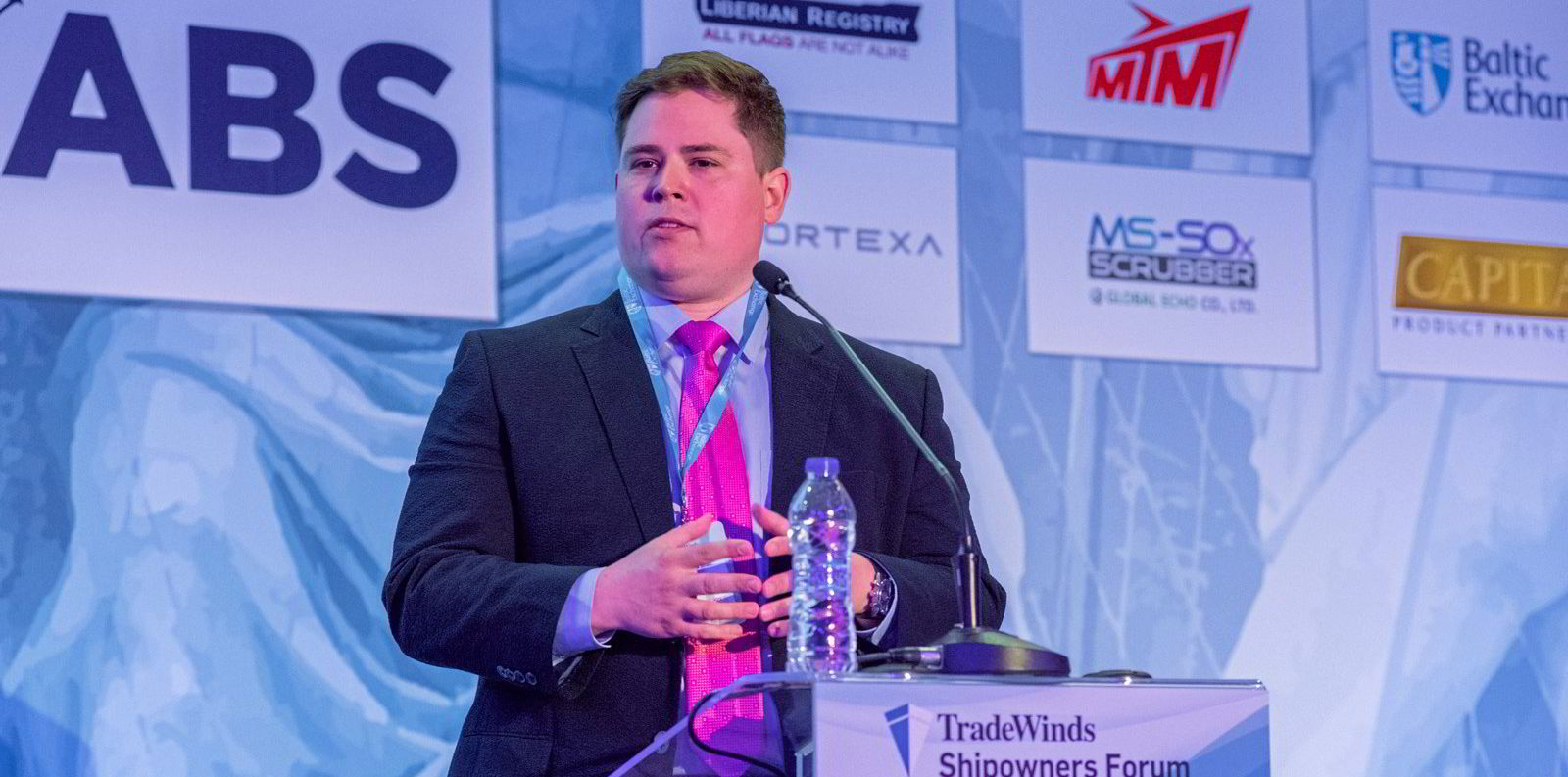
Nautilus Labs chief executive Matt Heider, whose New York-based company harnesses ship data and then uses artificial intelligence to optimise vessel and voyage operations to reduce fuel consumption and emissions, pointed to the need for changes in shipping’s commercial structures.
He said the relationship between shipowner and charterer, which pays for fuel and decides the speed and destination of a vessel, needs to evolve for the digital age.
“We’re working off of commercial arrangements and commercial agreements that are generations old and based on an era before there was data or information or insight that was readily accessible from ships,” he said.
Click here for a replay of the TradeWinds Shipowners Forum.
More news on sustainability and the business of the ocean
- Shipowners and their clients could do far more to enhance the operational efficiency of their ships with existing means but fail to do so, driven by narrow self-interest and poor cooperation, shipowners said at the TradeWinds Shipowners Forum. “I think we should be ashamed of ourselves — myself included,” said John Michael Radziwill, chief executive of C Transport Maritime and Goodbulk. Click here to read the story.
- Magda Kopczynska, director of maritime strategy at the European Commission, claimed the EU is not aiming for two carbon pricing systems as it gears up to apply its Emissions Trading System to shipping. “But we need that IMO measure first,” she said. Click here to read the story.
- Danaos Corp chief executive John Coustas said regulators need to adjust their approach to decarbonising shipping. “It is pointless to push shipping to become green when there is no green energy,” he told the TradeWinds Shipowners Forum. Click here to read more in TradeWinds’ Posidonia 2022 live centre.
